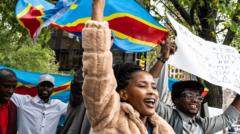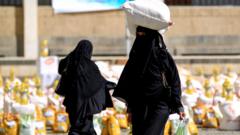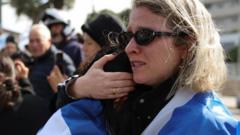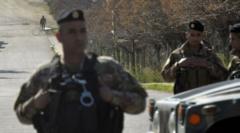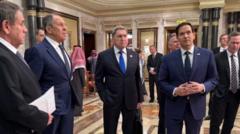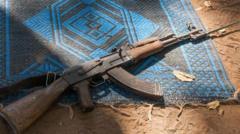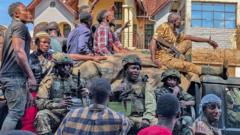Following intense fighting, Goma has fallen under the control of Rwanda-backed M23 rebels. With hospitals overflowing and critical shortages of food and water, residents face an uncertain future as Congolese forces abandon their posts.
Goma Faces Humanitarian Crisis After Rebel Takeover

Goma Faces Humanitarian Crisis After Rebel Takeover
The city of Goma in eastern Democratic Republic of Congo is engulfed in chaos as Rwanda-backed rebels capture the city, leaving residents struggling for resources.
In Goma, a city situated on the shores of Lake Kivu, the situation has rapidly deteriorated after weeks of combat as rebels backed by Rwanda have taken almost complete control. With a population of around two million, the once-bustling city now finds its citizens grappling with dire humanitarian conditions; hospitals are overwhelmed, and food and water are in critically low supply.
Eyewitness accounts describe the chaos that followed the rebel offensive. Residents cautiously emerged from hiding places to search for basic necessities, only to face the grim reality of a city in turmoil. The Congolese military, which was expected to provide protection and restore order, has been unable to fulfill its mandate, leading to widespread discontent among soldiers who feel abandoned.
On the outskirts of Goma, rebel fighters belonging to the M23 militia were observed loading captured Congolese soldiers onto trucks. Many among these men were in shock and anger, expressing their outrage not toward the rebels but at the Congolese President Felix Tshisekedi. Accusations of betrayal emerged among the soldiers, who claimed that they had been left to fend for themselves while their commanders fled by boat across the lake in the dark of night.
The stark reality facing the citizens of Goma demonstrates the severe impact of conflict in the region, further exacerbated by food and water shortages as well as public health crises stemming from the ongoing fighting. As the city grapples with its newfound reality, questions remain regarding the future of governance and stability in Eastern Congo, with residents fearing the long-term repercussions of the rebel takeover.
As Goma's situation continues to unfold, the international community watches closely, highlighting the urgent need for humanitarian assistance and a comprehensive resolution to the ongoing conflict that has led to such a significant humanitarian crisis.
Eyewitness accounts describe the chaos that followed the rebel offensive. Residents cautiously emerged from hiding places to search for basic necessities, only to face the grim reality of a city in turmoil. The Congolese military, which was expected to provide protection and restore order, has been unable to fulfill its mandate, leading to widespread discontent among soldiers who feel abandoned.
On the outskirts of Goma, rebel fighters belonging to the M23 militia were observed loading captured Congolese soldiers onto trucks. Many among these men were in shock and anger, expressing their outrage not toward the rebels but at the Congolese President Felix Tshisekedi. Accusations of betrayal emerged among the soldiers, who claimed that they had been left to fend for themselves while their commanders fled by boat across the lake in the dark of night.
The stark reality facing the citizens of Goma demonstrates the severe impact of conflict in the region, further exacerbated by food and water shortages as well as public health crises stemming from the ongoing fighting. As the city grapples with its newfound reality, questions remain regarding the future of governance and stability in Eastern Congo, with residents fearing the long-term repercussions of the rebel takeover.
As Goma's situation continues to unfold, the international community watches closely, highlighting the urgent need for humanitarian assistance and a comprehensive resolution to the ongoing conflict that has led to such a significant humanitarian crisis.

